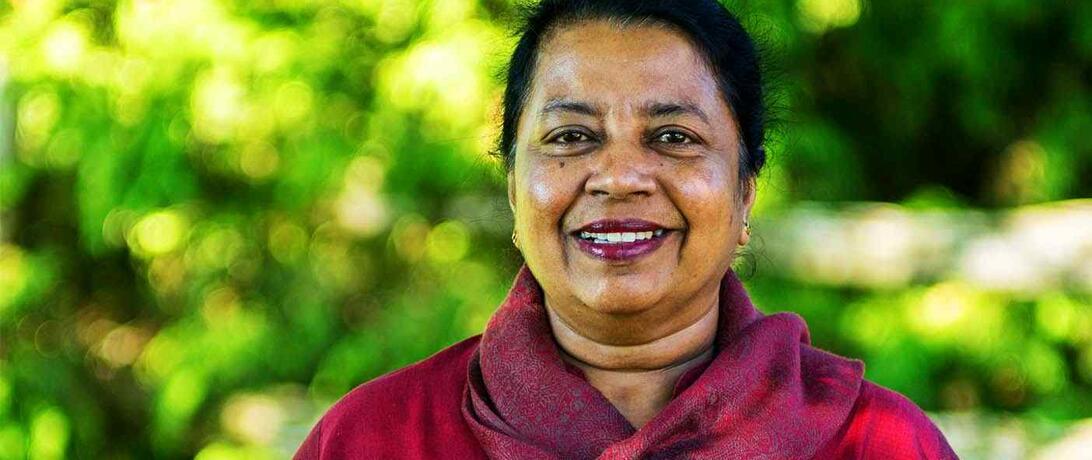
Our Notes From The Field series has been designed to highlight the opinions and advice of Women, Peace and Security experts around the world. This edition, we speak with Visaka Dharmadasa, founder and chair of the Association of War Affected Women about her work and plans for the future.
Our Notes From The Field series has been designed to highlight the opinions and advice of Women, Peace and Security experts around the world. In this series, we hope to bring attention not only to the tireless work they’ve been doing, but also to the plans they have for the future.
Visaka Dharmadasa is the founder and chair of the Association of War Affected Women and Parents of Servicemen Missing in Action. Ms. Dharmadasa educates soldiers and community leaders about international standards of conduct during war, specifically to raise awareness about the importance of soldier’s identification tags and treatment of prisoners of war. She received the prestigious Humanitarian Award in 2006 from InterAction in Washington, D.C. and was nominated for a collective Nobel Peace Prize in 2005, in coordination with the “1000 PeaceWomen Across the Globe” movement. She is currently a member of the Consultation Task Force on Reconciliation Mechanisms, appointed by the Government of Sri Lanka. Ms. Dharmadasa studied negotiations and mediation skills at the United States Institute for Peace and women and security at Harvard University.
- What are you currently working on?
I am working on preventing violent extremism on the global level, and on women and reconciliation at the domestic level in Sri Lanka.
- What is the one thing you want to change most in the world?
The way women are treated—no matter where you are, no matter who you are—we women are treated unequally everywhere. Not all the time, but certainly very often. This world will be a better place only when we can change all that. We have a long way to go and a lot of hard work to do towards achieving gender equality at every level and for all.
- How do you use Women, Peace and Security and UNSCR 1325 in your work?
We have been working on the WPS agenda for a very long time and UNSCR 1325 has been our Bible, if I may call it that. We have used it to secure our due places.
- What keeps you up at night?
I often thought that 17 years following the passing of UNSCR 1325, women's lives across the world would be as we envisaged—equality would be the norm and women would not have to keep on knocking at doors to enter into any field or space that they want to. But when I look around, I realize that we still have a long way to go, and I’m motivated by my desire to think of new strategies to make our journey smoother.
- What has surprised you the most about this work?
It makes you feel good, but the path we have to walk doesn’t seem to end. When I meet young women, it makes me feel very hopeful – their determination to change the status quo is very promising. Sometimes I’m surprised by the fact that as much as some people don’t understand our work for change and what we want to say, many more really do understand, approve of, and support our work.
- What should we pay attention to now?
I believe that we have fully implemented 1325 only when the women at the grassroots throughout the world feel that there is a change. If we can make life better for women then we have done something. But having said that, let’s concentrate on what is doable at the moment. My dream is to get the UN to buy into the definition of security as women define it. So, let’s convene a group of women who can define security. I often say that “once you make your enemy secure, there will not be an enemy anymore.”
So, instead of trying to secure ourselves, let’s make our enemies secure instead.
Article Details
Published
Written by
Topic
Program
Content Type
Opinion & Insights